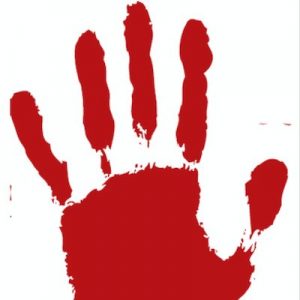What is Discriminatory Abuse?
Discriminatory abuse includes forms of harassment, slurs or similar treatment; because of race, gender and gender identity, age, disability, sexual orientation or religion.
Race, gender, disability etc. are known as ‘protected characteristics’. The list below shows different forms of discrimination towards people because of their protected characteristics.
- Direct discrimination – treating someone less favourably than others
- Indirect discrimination – putting rules or arrangements in place that apply to everyone, but that puts someone at an unfair disadvantage
- Harassment – unwanted behaviour that violates someone’s dignity or creates an offensive environment for them
- Victimisation – treating someone unfairly because they have complained about discrimination or harassment.
Crimes committed against people because of their protected characteristics should be reported to the police – see further information below.
Types of Discriminatory Abuse
- Unequal treatment based on age, disability, gender reassignment, marriage and civil partnership, pregnancy and maternity, race, religion and belief, sex or sexual orientation (known as ‘protected characteristics’ under the Equality Act 2010)
- Verbal abuse, derogatory remarks or inappropriate use of language linked to a protected characteristic
- Denying access to communication aids, or not allowing access to an interpreter, signer or lipreader
- Harassment or deliberate exclusion on the grounds of a protected characteristic
- Denying basic rights to healthcare, education, employment and criminal justice relating to a protected characteristic
- Sub-standard service provision relating to a protected characteristic
Signs and Indicators
- The person appears withdrawn and isolated
- Expressions of anger, frustration, fear or anxiety
- The support on offer does not take account of the person’s individual needs in terms of a protected characteristic
What is Hate Crime?
Crimes committed against someone because of their disability, transgender-identity, race, religion or belief, or sexual orientation are hate crimes and should be reported to the police. Hate crimes can include:
- Threatening behaviour
- Assault
- Robbery
- Damage to property
- Inciting others to commit hate crimes
- Harassment
- Online abuse
Call 999 if you’re reporting a crime that is in progress or if someone is in immediate danger. If the crime isn’t an emergency, call 101. You can also report hate crime online.
What is Mate Crime?
Mate crime happens when someone ‘makes friends’ with a person and goes on to abuse or exploit that relationship.
It can affect many people within communities, including people with learning disabilities, mental health issues, substance abuse issues, and older people
Mate Crime can be linked to a form of exploitation known as ‘Cuckooing’. Cuckooing is where a criminal befriends someone who lives on their own. The criminal then moves in and/or uses the property to operate unlawful activity; this could include the storing and/or distribution of drugs.
Indicators of mate crime can be similar to other forms of abuse. Potential signs include:
- Bills not being paid, a sudden lack of money, losing possessions, suddenly changing their will
- Changes in routine, behaviour, appearance, finances or household (new people visiting or staying over, lots of new ‘friends’, lots more noise or rubbish than normal).
- Cutting themselves off from established networks of friends/family and support, missing weekly activities.
- Secretive internet or mobile phone use.
TSAB’s “Tricky Friends” animation was developed to help people to understand what good friendships are, when they might be harmful, and how to seek help and support.
Support
If you think you have been unfairly discriminated against you can complain directly to the person or organisation or it may be something that can be dealt with by your local adult social care service.
To report abuse to your local adult social care service visit TSAB’s Report Abuse page.
Call 999 in an emergency or visit Cleveland Police’s website for other ways to report a crime to Police.
Visit TSAB’s Find Support in Your Area to find local support services.
Resources for Professionals
- Podcast: Discriminatory Abuse – developing practice resources (Research in Practice)
- Briefing: Discriminatory abuse: a briefing for practitioners (LGA)
- Self Assessment Tool: The discriminatory abuse self-assessment tool is intended to support councils, Safeguarding Adult Boards (SABs), practitioners from all sectors, staff responsible for reporting adult social care (ASC) performance; safeguarding leads and commissioners. (LGA)